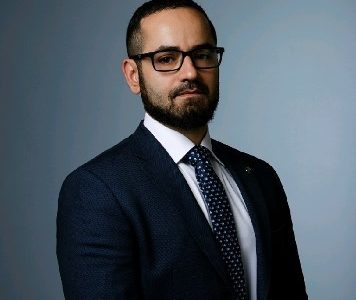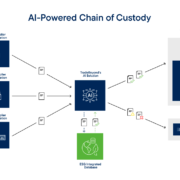By Oluwatobi Opusunju
Foreign Direct Investment (FDI) into Nigeria’s telecoms sector is declining despite the sector’s strong attraction, According to data by the National Bureau of Statistics (NBS), the sector recorded its lowest in the past three years in 2017.
The NBS’s data showed a 35% decline in FDI in that year, recording $606.6 million compared to $931.2 million and $994.3 million that was recorded in 2016 and 2015 respectively.
Stakeholders have blamed this downward trend on several factors which include inconsistency of government’s policies, regulatory impediments, economic instability, and harsh business climate among others.
Investors are weary
The Executive Director of PPC Systems Integrator, Mr. Ayo Grillo who spoke to IT Edge News in a recent interaction, noted that government’s failure to consistently pursue a sustainable policy thrust has frustrated the growth of FDIs into the sector.
According to Grillo whose background is finance, investors are weary of pumping further money into the country not because there are no investment opportunities, but due to inconsistency in government policies.
“Investment in a lot of sectors in the country, not just the telecoms sector has been low. The reason for this is basically structural. Lack of consistency in policies prevents foreign direct investments (FDIs). For example, if you come up with a pronouncement today and tomorrow you reverse it, what you would have succeeded in doing is frustrate investment opportunities,” said a concerned Grillo.
Speaking also in a separate interaction with IT Edge News, the President of Association of Telecoms Companies of Nigeria (ATCON), Olushola Teniola attributed the downward trend of investment in the sector to regulatory bottlenecks such as right of way (RoW) and over taxation as well as lack of right policy framework.
Insecurity of telecoms critical infrastructures
Founder of Computer Warehouse Group (CWG) Plc, Mr. Austin Okere shares similar concerns, Okere mentioned to IT Edge News that right of way (RoW), over taxation of telcos and poor security of telecoms critical infrastructures impede sustainable investment. His words:
“Look at right of way (RoW), there are companies that are ready to put fiber in the ground but by the time you go from here to there, area boys and government will come. The last I heard was that even the telecom base stations, people go there to steal the batteries for their home inverters, which really doesn’t pay anybody because only one person is going to have the inverter all to himself and these base stations are serving so many millions of people. So, at the end of the day we are the architects of our failure.
“If there is broadband let’s say in Ado Ekiti, for instance, it will boost the economy of the whole of Ado Ekiti much more than the tax you make from the telecom company or whoever is digging, but they want to collect that money, so they don’t dig and they don’t provide broadband for people in Ado Ekiti. Ado Ekiti now ends up not getting the tax and broadband eventually, so it is a double lost.”
RoW hampering growth
IT Edge News checks reveal that while about 140 Naira per metre is stipulated by law to be charged from operators to lay underground cables, a lot of state governments charge up to 6000 Naira per metre due to greed.
According to Teniola, these issues faced by operators have conspired to hamper growth and investment in the sector.
“In Nigeria today, the telecommunications sector is faced with the challenge of multiple taxation. This is not helping the industry to grow as all tiers of government are taxing the sector and the direct resultant effect of this is erosion of profits, which does not encourage further direct investment to the country,” he said.
However, Grillo believes the telecoms industry is still an attractive industry with a lot of investment opportunities, but the government must make concerted efforts to create right environment to attract investors. Government need to have an all-stakeholders; approach to making policies, said Grillo. His words:
“When the government only makes its policies without the input of stakeholders, it ends up not benefiting anybody at the end of the day. There are so many hurdles within all sectors, but if there is a strong partnership between the government and private sector, then these issues can be resolved.”































